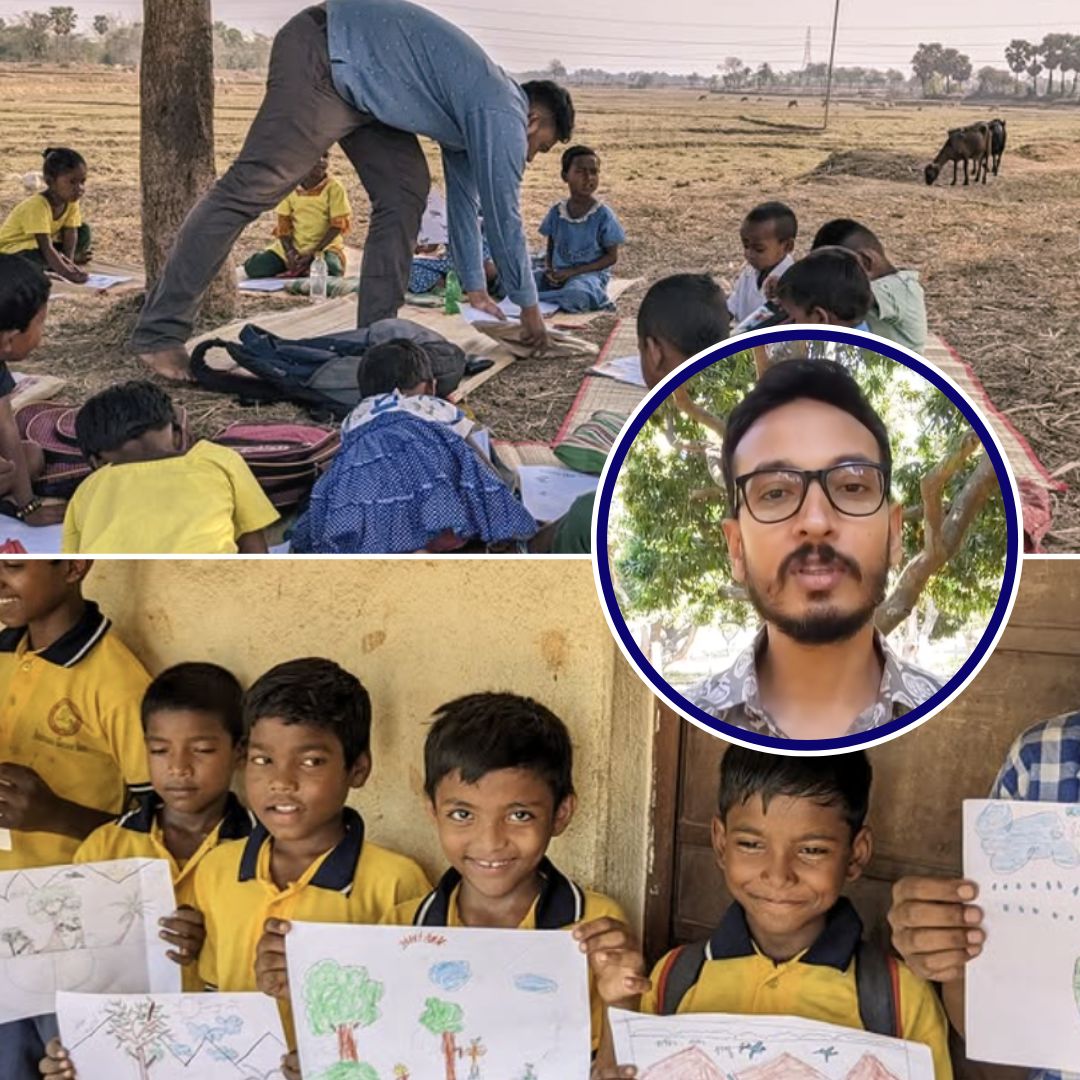Nestled in the verdant Bagdabra forest of Murshidabad, West Bengal, Anirvana Gacher Iskul stands as a testament to resilient, community-driven learning. Initiated in 2021 by Angshuman Thakur, a passionate Bengali literature professor at Prof Syed Nurul Hasan College in Farakka, this open-air tree school serves first-generation tribal children from remote hamlets like Shamlapur.
Emerging from Thakur’s tree-planting efforts amid the pandemic, it began with five students and has steadily expanded to over 105 learners spanning kindergarten to Class 12. Funded through a nominal Rs 300 monthly fee per child, alongside Thakur’s personal contributions and donations via the Gaach Green Hands Social Welfare Trust, the school holds early morning sessions to complement formal schooling.
This timing builds routine while addressing dropout risks, earning widespread acclaim from villagers and district officials who view it as a vital grassroots intervention.

Immersive Learning Under the Canopy
Rooted in Rabindranath Tagore’s philosophy of education attuned to nature—echoing his Visva-Bharati legacy—Anirvana Gacher Iskul transforms the forest into a dynamic learning space. Under the sprawling neem and mango trees, curricula blend core subjects with hands-on exploration: students connect biology lessons to local flora, fostering a profound sense of ecological awareness.
Creativity flourishes through integrated activities like sketching, sculpting with clay, rhythmic dances, musical expressions, and even sports, often guided by visiting professional artists. These elements not only enhance academic engagement but also nurture holistic development, helping children from labour-vulnerable families discover joy in learning.
Nutritious mid-day meals, prepared with community-sourced ingredients, combat undernutrition and boost daily attendance, creating a supportive ecosystem for growth.

Navigating Pandemic Fallout with Innovation
The COVID-19 disruptions hit Murshidabad’s tribal communities hard, with prolonged school closures and absent digital access forcing many children into economic roles alongside parents. In areas like Bahadurpur block, where daily-wage livelihoods crumbled, first-generation learners risked permanent disengagement from education.
Thakur responded by repurposing his afforestation drives into an educational haven, offering meals and morning classes beneath the trees to draw families back. This adaptive strategy rapidly grew enrolment from a handful to dozens within weeks, providing stability where government midday programs faltered.
Community solidarity shone through, with the local head donating a multipurpose centre for monsoon protection, ensuring uninterrupted sessions year-round and safeguarding progress against seasonal challenges.
A Scalable Vision for Equitable Empowerment
Anirvana Gacher Iskul’s success, highlighted by its 2023 Caring Minds Award from The Telegraph for compassionate education, demonstrates how localised, empathetic models can uplift marginalised youth. By instilling environmental responsibility, artistic flair, and entrepreneurial mindsets, it equips students to lead sustainable rural transformations.
Thakur’s ongoing plans include securing land for a green campus with a library and tech facilities, bridging digital divides while preserving cultural ties. To scale nationally, policymakers could embed such approaches in initiatives like Samagra Shiksha through incentives for eco-pedagogy training, NGO collaborations for funding, and land-sharing policies.
Emphasising context-specific, joyful learning would help close urban-rural gaps, cultivating empowered generations poised for inclusive national progress. This tree school isn’t merely an institution; it’s a living blueprint for harmony between education, nature, and community resilience.
The Logical Indian’s Perspective
Anirvana Gacher Iskul uniquely exemplifies the values The Logical Indian champions, education rooted in empathy, kindness, and coexistence. It demonstrates that beyond textbooks, learning thrives when connected to culture, nature, and community resilience.
This model fosters holistic development, environmental stewardship, and creativity, helping marginalized first-generation learners reclaim their right to education and dignity. Supporting such initiatives is crucial for nurturing inclusive growth and sustainable futures, especially for vulnerable rural children. As the school plants seeds of knowledge and entrepreneurship in these young minds, it also cultivates harmony between society and nature.












